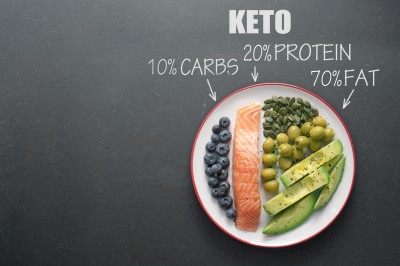Free shipping for orders over 39.00€
Magnesium, an essential mineral to the body

Magnesium is of the most important minerals for the body's performance, and after calcium, is the second mineral found in high concentration in the human body and participates in over 300 metabolic and biochemical processes of the complex human organism.
In general, during the past decades, it has been scientifically proven that magnesium is beneficial in many human body operations. Its contribution is essential in the body's energy regulation, the nervous and muscular systems as well as in the health of the bones. In fact, magnesium is considered a "natural competitor" of calcium!
However, as strange as it may seem, magnesium is not produced by the human body. On the contrary, we absorb it through our nutrition, which is why it is crucially important to include it in our daily diet.
So, what are the benefits of magnesium to the human body?
Magnesium:
- Relieves insomnia and headache, helps reduce chronic fatigue
- Strengthens and boosts the heart, as well as the nervous, muscular, and respiratory systems
- Helps lower blood pressure, maintain bone density, and protect against diabetes
- Reduces anxiety and stress, muscle contractions and cramps, symptoms of pre-menstrual syndrome and dysmenorrhea, and the chances of developing complications during pregnancy
- Relieves symptoms of constipation
- Contributes to electrolyte balance, normal metabolism, and normal psychological performance.
Which food contain magnesium?
Green leafy vegetables, cereals, whole meal bread, brown rice, legumes, and nuts are foods rich in magnesium, although, in general, it is found abundant in all foods-except fats-while in smaller quantities it is contained in chocolate, fruits, meat, fish, and dairy. Processing, cooking, and especially boiling foods significantly reduce their magnesium content.
What are the symptoms of magnesium deficiency?
Magnesium deficiency is not particularly common in healthy individuals; however, low intake can present the following symptoms: loss of appetite, nausea, vomiting, cramps, fatigue, and weakness. If the deficiency of magnesium intake by the body continues, then numbness, tingling, muscle twitching, abnormal heart rhythms, and hypocalcemia may occur.
According to research, magnesium deficiency is observed in 2.5-15% of the population and is common in hospitalized patients, while it coexists with the lack of other elements. Magnesium deficiency is not always due to poor nutrition, but it can be associated with exhausting slimming diets, prolonged physical exertion, excessive sweating, or diarrhea.
People who suffer from gastrointestinal diseases, type 2 diabetes, or are elderly may suffer from magnesium deficiency. This is due either to the insufficient amounts they receive or to some treatment that reduces the absorption of the metal from the intestine and increases its losses from the body.
Where to find magnesium?
Magnesium's importance for bone health is overwhelming. Having that said - in addition to food - we can acquire magnesium via dietary supplements with vitamin D, calcium, and vitamin K. In addition, when combined with melatonin it is considered an excellent aid for insomnia confrontation while combined with vitamin B6 and inositol helps fight anxiety and improves mental health.
Magnesium as a dietary supplement is available in tablets, capsules, effervescent or chewable tablets, in crystal or powder form, and in liquid or liposomal form. However, it is good to know that the magnesium we consume from dietary supplements is absorbed by 30-40% by the body and the recommended instructions is to be taken morning and/or evening after meals or according to the instructions listed.
The recommended daily intake for adults is: 320 mg for women and 420 mg for men, but not more than 500 mg. while for children and adolescents, the recommended daily prevention is 80-200 mg.
Finally, pregnant, and breastfeeding women can take 360-400 mg of magnesium daily. In any case, for exceeded than the recommended intake, relevant instruction from a doctor is needed.
What are the existing types of magnesium?
Magnesium malate
- It has the greatest bioavailability and is associated with:
- Binding and elimination of toxic metals from the body
- Saliva production and control of oral bacteria
- Relaxing muscles and improving muscle performance
- Converting food into energy
- Relieving heartburn
Magnesium citrate
It has a very good absorption rate and is a good choice for people who suffer from constipation while acting preventively and for those who suffer from migraines.
Magnesium diglycinate
It has anti-inflammatory action and helps improve blood sugar levels while thanks to the amino acid glycine promoting the feeling of relaxation and improving the quality of sleep.






